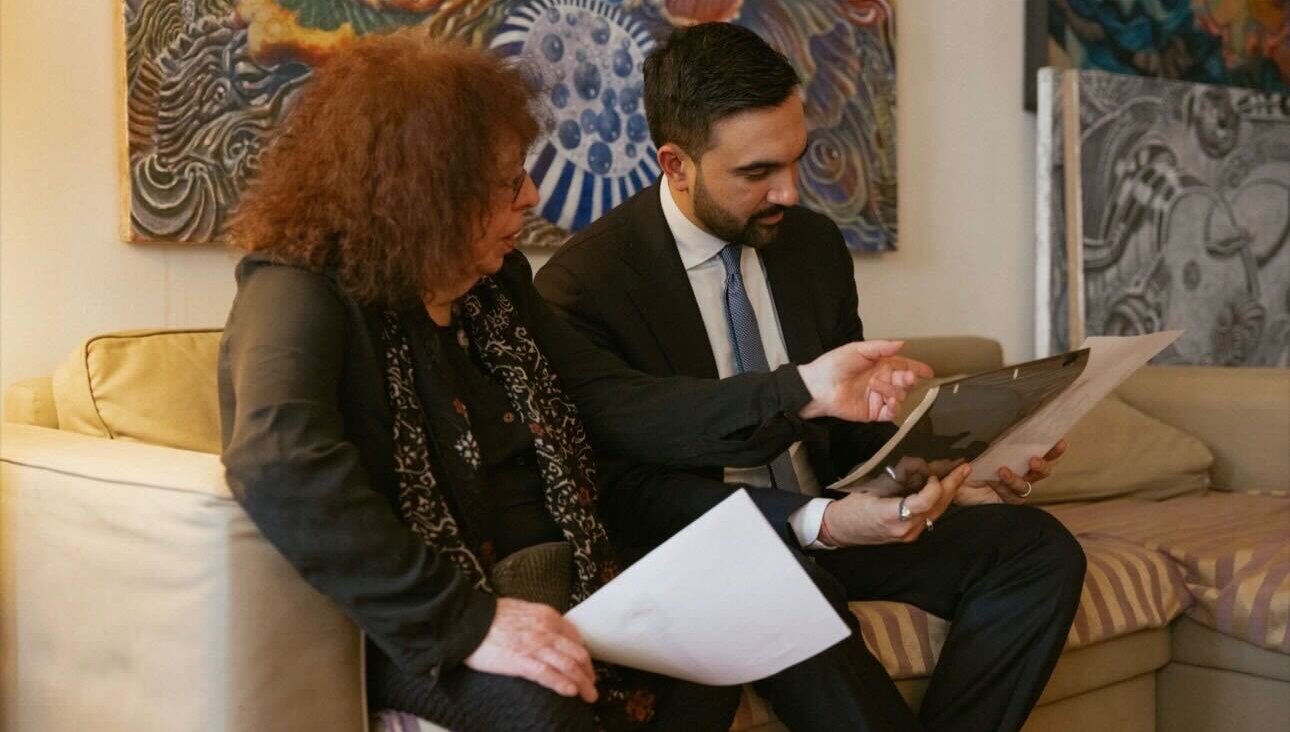The Bar Mitzvah: A Universe of Fountain Pens
Next month, Forward contributor Mark Oppenheimer will be release his second book, “Thirteen and a Day: The Bar and Bat Mitzvah Across America”(Farrar, Straus and Giroux). Below are excerpts from three of its chapters. The first is devoted to a thoughtful girl from New Haven, Conn.; the second, a bar/bat mitzvah tutor from Tampa, Fla., and the third, a pair of converts to Judaism, a 65-year-old man and a 61-year-old woman, from Lake Charles, La.
In the season of her bat mitzvah, Annie Bass chose to obey religious strictures that most of us would find onerous. Annie was raised not to watch television or check e-mail on Shabbos. Those were her parents’ rules, but it was her own decision to begin praying every day while wearing tefillin, the small black boxes containing scraps of Hebrew that are traditionally worn only by Jewish men at prayer. Tefillin, in particular, were simultaneously an example of Annie’s independent thinking and of her willingness to suspend independent thought. With this religious devotion, she was choosing to accept that there are things one does not choose.
“I like keeping Shabbos,” Annie said. “It feels weird if I don’t. It feels weird when I turn on the lights by accident. I have to follow some rules” — the ones her parents enforce — “and I choose to follow others. I just stopped writing and it feels better. It feels cleaner.”
Annie’s explanation of why she had given up writing on Shabbos is unusual for a girl so young. We tend to think of budding adults as eager to leave behind some of the insistent cleanness of early childhood, to trade innocence for something grittier, we might even say dirtier. And Annie still might turn to the dark side — rather, she will turn to the dark side, in that even the most childlike do grow worldlier. What was unusual about Annie’s response to Shabbos was her preternatural sense that cleanness is to be held onto, a precious commodity whose scarceness she will mourn when she is an adult and the world is too much with her.
* * *|
Amy Krisher, a twelve-year-old with long brown hair, glasses, and an outside prayer of reaching five feet tall, is sitting in the kitchen of Judi Gannon, her Torah tutor. She is having trouble with her pronunciation.
“I can’t do it,” she says. “My braces were tightened yesterday. My mouth hurts.”
Judi already guessed that the braces were the problem. “I know immediately when the teeth hurt” — one of the many things that Judi, Tampa’s leading Torah tutor, knows about twelve- and thirteen-year-olds. In addition to divining her kids’ orthodontic struggles, Judi can tell when the girls are sore from dance practice and when the boys are nursing bruises from soccer. She can tell when their mothers are lying on the phone, inventing pretexts for canceling a tutorial. She can tell by the way mothers and fathers call to their children from the car window which parents are emotionally abusive, which parents really love their children, and which fathers drink. Judi knows which mothers, on the Friday before the bat mitzvah, when the girls usually want one final lesson to make sure they have Noach or Toldot down just right, persuade their daughters that it’s more important to have a manicure. And Judi knows which mothers patiently come with their daughters, to sit with them during that stressful final lesson.
* * *|
Jacob Ecker and Rena LeJeune did not remind me of other converts I had known. They had not come to Judaism through a bevy of Jewish friends, and they had not been enfolded in the arms of the community since converting. When I met him, Jacob was teaching Hebrew at the temple and was the designer and keeper of its web page, but he was not part of the temple social scene.
“I’m not sure what my relationship is with the people here,” Jacob said. “There’s no one here I dislike. There is nobody here other than Rena who has become a personal friend. But somewhere in between are an awful lot of nice people…. We come in, we do the thing we came to do. And we thoroughly enjoy it while we’re here, and then we go back out to the other world.”
Rena, too, felt warmth, but not ardor, for her fellow Jews.
“No one knocked on my door and said, ‘Come join the Hebrews,’” she said. “No one called me on the phone. In other religions there is that revival street-pounding type of search for new members. And it’s good and it’s bad. Because it’s an emotional thing, and you can get emotional in any kind of religion, but I didn’t want to be emotionally led into anything anymore. I had been there and had that.”














